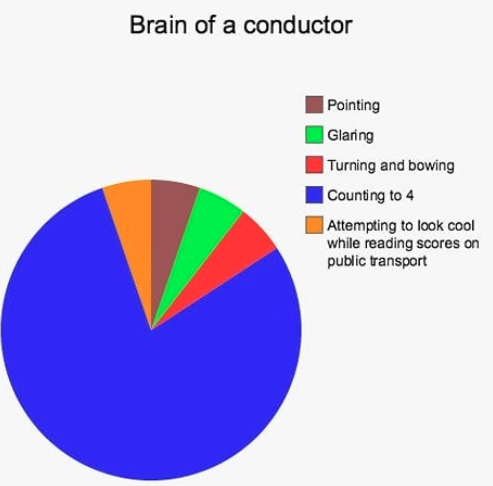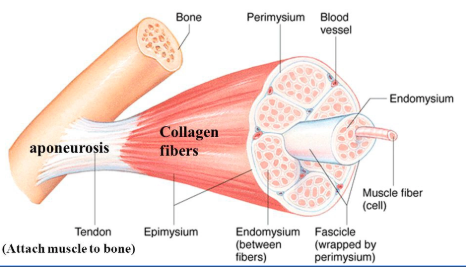ALSO: How are people going to reproduce the original metal alloy. It contained lead. In the mid-50's our government highly regulated leads use in producing brass alloy. That will take away from timbre. How do you adjust for this?
Posts made by Dr GO
-
RE: Martin Committee Clubposted in Vintage Items
-
RE: Martin Committee Clubposted in Vintage Items
@Zman said in Martin Committee Club:
@tjveloce thanks for your insights.
...I already made one that used a Committee block with an engraved Lawler C7 deluxe bell that turned out fantastic. Now I am looking at BC 9 & 10 and have the parts to make other versions using original bells.
I played the Lawler C7. It does not sound as my Committee, it is only a copy, and not one of the better ones. The bell is as important a key feature as the original bell. It must have the exact taper and dimensions of the original or it will not sound as a vintage Committee.
-
RE: Martin Committee Clubposted in Vintage Items
@Zman said in Martin Committee Club:
@tjveloce thanks for your insights.
I should feel that I should explain myself a little more when I refer to 'cosmetics' as I have something in mind. If the valves were Martin, but the valve casing looked slightly different - would that sway your decision to purchase an instrument based on this?
The valves MUST be original Martin. There is no substitute. This "pistons" (Martin's designation) are unique and are primed by water. They work amazingly well with this design. This is one of the virtues I adore about the original. In addition, the wear better then ANY trumpet I own. My horn is a 1946, 73 years old, and looks BEST of all my horns. Pristine. Don;t change the original. It is perfect.
To answer you basic question: The valve casings would not be an issue.
-
RE: Martin Committee Clubposted in Vintage Items
Hmm... read this on their "About Us" link:
After thorough investigation I learned that, like The Martin Band Instrument CO., Kanstul Musical Instruments, in Anaheim, California was found to be one of the most respected and trusted brass instrument manufacturers in the world today! I like the fact that they are family owned, and that every metal part of the horn is made in house and in the USA. Kanstul is also known for their precision and high-quality instruments, and I want nothing less for my customers. Based upon their reputation, I have selected Kanstul Musical Instruments to be the manufacturer for the Martin Brasswind Co. Though it takes approximately 6 to 8 weeks to build, it is WELL WORTH THE WAIT.
With Kanstul no longer producing horns, is this Committee also doomed to extinction?
-
RE: No real gains on anything more than 40-45 minutes of practice.posted in Comeback Players
@administrator said in No real gains on anything more than 40-45 minutes of practice.:
Would you say that the paragon of performance was when the flow of norepinephrine through the capillaries of Maynard Ferguson was at its apex? Surely his sympathetic nervous system would concur.
I would say with Maynard's command of the upper range, his muscarinic receptors were most in tone and most active with a huge reservoir of acetylcholine drive.
-
RE: Some good...."non-trumpeting" music :)posted in Lounge
Tubey or not Tubey: Bohemian Rhapsody played entirely on plastic tubes
-
RE: A little humourposted in Lounge
I was walking out of a nursing home after visiting a patient there, when I heard a discussion between a male resident sitting out on a sidewalk bench, and an obvious lady of ill-repute scantily clothed.
I heard the woman of the street ask the male nursing resident: Sir, would you like super sex?
The resident's reply was:
Well, I'll take the soup! -
RE: A little humourposted in Lounge

I seemed to bring more of the green out from the conductors in bands in which I played!
-
RE: No real gains on anything more than 40-45 minutes of practice.posted in Comeback Players
@administrator said in No real gains on anything more than 40-45 minutes of practice.:
When I go cycling, I expect to feel pain in my legs and I expect my cardio system to pick up significantly...
Nah... You don't feel pain as It's your endorphins kicking in.!

AND if you look at the stress per muscle bundle, cycling (weight lifting) uses HUGE groups of muscles so the strain and relief is distributed over many helping muscle groups.
Actually, there is nothing wrong with that if you do a good stretch exercise before and after the cycling activity.
The lips just don't have this same assistance level of coordinated help.
AND you are placing an un-natural strain on the lips by pressing a hard metal object against these muscle groups.THAT is a BIG difference. Try riding your bike that with each pump cycle while metal bar compress the calf muscles. You would be heading to the local ER in extreme pain with rhabdomyolysis related renal failure.
-
RE: A little humourposted in Lounge
@SSmith1226 said in A little humour:
@J-Jericho
This isn’t as funnyHere is the story: https://www.theguardian.com/science/2015/may/05/microwave-oven-caused-mystery-signal-plaguing-radio-telescope-for-17-years
What isn't funny about the is it took SCIENTISTS 17 years to figure this out!
-
RE: How to post pictures ???posted in Lounge
@MasterWannabe said in How to post pictures ???:
I hate to seem like a dunce but I got to go with what I have. In my first post I posted some pictures but for the life of me I can't seem to figure out how I did it. Could somebody please take pity on an old guy and give me directions ?
There are two ways of doing this.
FIRST try going to the tool bar that comes with the site:

The icon circled is the one you want to choose IF THE PICTURE IS STORED IN YOU COMPUTER:
Once you select this icon, you will be given instructions on going the file of the picture you want to post, then when you select you picture in the file, hit the response button in the instruction window.ANOTHER WAY to do this is to go to your Search Window on your Windows Program that says: Type here to search. Then type in "snipping tool". A tool will automatically appear. Select "New" then outline the picture you want to post. Next, go up to the Edit command (second choice in), select it and choose "copy". Then go to your TB window you are wanting to post in and just hit "paste". It should post fine.
IF you get ERROR messages with either method, I found this neat trick to do:
Open up your Microsoft Word window, paste the picture in that file, down size it then recopy and try it again. Eventually, you will get a size that TB will accept.Hope this helps!
-
RE: No real gains on anything more than 40-45 minutes of practice.posted in Comeback Players
@administrator said in No real gains on anything more than 40-45 minutes of practice.:
No pain no gain does not apply to trumpet playing!
ALSO AGREED:
However, there is another saying, and that relates to what does it mean to "work through the pain"? THAT depends on the situation and the task at hand (as many of the physical therapists out there will know).When it comes to lip pain from excessive playing, here is what you do:
- STOP playing
- Begin lip massage in the area of pain for a couple minutes or so. This increases blood flow to the area to help move out the "bad toxins", and help prevent further damage.
- Come back to re-do the massage every 5 minutes until the pain has subsided.
IF you do this early enough into the pain process AND the pain resolves (typically 10-15 minutes), you can try to play once again, but if that pain returns, you are done for the day... OK?
-
RE: No real gains on anything more than 40-45 minutes of practice.posted in Comeback Players
@administrator said in No real gains on anything more than 40-45 minutes of practice.:
...it's hard to say what is "too much" pressure and what is not. However, if you feel any pain at all, you are probably hurting yourself....
AGREED:
I always tell my patients, pain is your friend. Listen to pain. It is mother nature's way of letting you know you are overdoing what your body was designed to do. If you ignore pain, you are at a higher risk of doing damage. -
RE: No real gains on anything more than 40-45 minutes of practice.posted in Comeback Players
@N1684T said in No real gains on anything more than 40-45 minutes of practice.:
But whats a good test of what IS too much pressure?
Endurance. How long are you lasting before you loose fine control of attacking your notes or starting to diminish your tonal quality?@N1684T said in No real gains on anything more than 40-45 minutes of practice.:
I read one about palming the trumpet, and another about turning the trumpet all the way around while playing a constant note.
Don't do this. This is a high risk procedure to damaging lip muscle.@N1684T said in No real gains on anything more than 40-45 minutes of practice.:
I have been guilty of using WAY too much pressure when tired... whats a good test?
Your answer is in your question. You feel "tired". This is a sign that is before pain sets it. Being tired is a sing to either cut back considerably or quit for the day (or at least for several hours)@N1684T said in No real gains on anything more than 40-45 minutes of practice.:
...and actually leaving an impression on the lips...
Leaving an impression on you lips (acutely-which is results in plethora (reddened)) is and advanced sign of muscle blood flow into the area to begin "healing" a stress environment. Now a chronic ring that is silver is a sign of healthy adaptation of the soft tissue and collagen that helps protect your lips.
Collagen is the most available protein in your muscles and ligaments. Collagen is a building block that: 1) promotes skin elasticity; 2) holds together your bones and muscles: 3) protects muscle for excessive strain; 4) provides structure to joints and tendons. Your body produces collagen on a regular basis and will particularly lay down fibers in more areas needing protection (such as that silvery ring around you lip).

@N1684T said in No real gains on anything more than 40-45 minutes of practice.:
I realize this sounds like a silly question, but if i need clarification, others might as well?
Not silly at all. I hope the above segments help clarify. -
RE: No real gains on anything more than 40-45 minutes of practice.posted in Comeback Players
@N1684T said in No real gains on anything more than 40-45 minutes of practice.:
But whats a good test of what IS too much pressure?
Loss of control. Accuracy of hitting notes falters, tone begins to pinch.
-
RE: No real gains on anything more than 40-45 minutes of practice.posted in Comeback Players
@N1684T said in No real gains on anything more than 40-45 minutes of practice.:
I see this all the time, but a definition of too much pressure would be helpful?
Too much pressure in this context with the embouchure relates to actual physical pressure of the metal mouthpiece compressing lip muscle. This does two things:
-
Pinches off blood supply to many muscle unites causing lactic acid build up and chemical anaerobic induced fatigue;
-
Pins the lip muscle directly against the dentition which decreases it's ability to vibrate. The more vibrating that is in contact with the mouthpiece cup, the more effective the wave form created transmits to the air column within the mouthpiece and subsequently the wave that is transmitted down the leadpipe and into the horn.
-
-
RE: No real gains on anything more than 40-45 minutes of practice.posted in Comeback Players
@Three-Sevens said in No real gains on anything more than 40-45 minutes of practice.:
@Dr-GO
That's a NICE Jeep! Hard to be incognito in that great color!Hope you take yours out topless often!
Mike
Mike, it's a beautiful day in May and here I am Topless:

-
RE: LONG TONESposted in Etudes and Exercises
@BigDub said in LONG TONES:
Nothing exceeds like excess.
Once again, this was Eugene Blee's exercises he developed to optimize his performance. He was the longest sitting principle trumpeter for the Cincinnati Symphony Orchestra. Exceeding in excess this is not. Give it a try. It is not excessive at all.
It takes very little warm up time to get through this exercise series, and if performed entirely in series, truly guarantees preparing the embouchure for a days worthy performance.
-
RE: Jerome Callet has Passed Awayposted in Bb & C Trumpets
A real loss for the trumpet community. My thoughts go out to his family in this loss.
I met him personally after a lesson with Claudio Roditi. Claudio took me to his studio at the conclusion of one of our lessons, after we discussed mouthpieces influences on sounding of the trumpet. Jerome hand lathed a custom mouthpiece for my Olds Recording on the spot. He first identified a cup that worked best for me, had me play my horn, then took it to his lathe to work on the back bore. He did this 5 times going back and forth between my horn and his lathe. He did not charge me a dime for his expertise or his time!
-
RE: LONG TONESposted in Etudes and Exercises
You are so welcome. They have worked well for me for over 40 years. I will not start a rehearsal or performance without first doing these excesses.